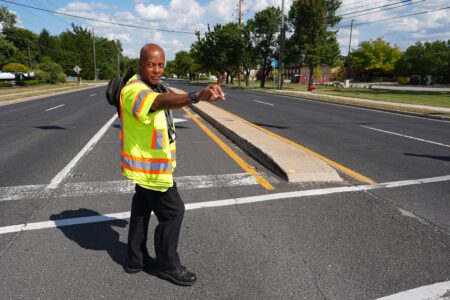Attorney Calls DMV Hearings ‘Kangaroo Court’
CHARLESTON – Motorists pulled over for suspected DUI in West Virginia may have their license suspended even if charges are dismissed in criminal court.
The same can also happen if a jury acquits the accused or, in some cases, when the driver’s blood alcohol level measures lower than the legal limit of .08 percent.
Because of this, Martinsburg Attorney Harley Wagner, who owns and operate West Virginia’s only exclusive DUI defense firm, calls the Department of Motor Vehicles’ side of the state’s two-tier prosecution system as a “taxpayer-funded kangaroo court.”
As founder and vice-president of the West Virginia DUI Defense Lawyers Association, Wagner believes the Legislature should revamp the DMV revocation system to resemble the one-tier models in Ohio and Virginia, where license ramifications for DUI offenses sink or swim in the criminal courts.
“The DMV can – and does in about 95 percent of cases – suspend the license of motorists pulled over for DUI regardless of the outcome in criminal court,” he said.
“In other words, even if a magistrate or judge rules a driver was not legally intoxicated, the DMV can suspend that person’s license.”
A High Price
Wagner said when a police officer suspects a motorist is driving under the influence and issues a ticket, a report is sent to the DMV, which then schedules a hearing for the accused to attend. The hearings are administered through the state Department of Transportation Office of Administrative Hearings.
According to Wagner, hearing examiners, who are not attorneys and are only required to have a high school education, are sent to local DMV headquarters to serve as judges in the cases.
Because of a backlog of nearly three years in the hearing process, the legislature passed a bill last year allowing the accused to waive his or her right to a hearing and be connected to a vehicle ignition interlock device – commonly called a “blow and go” – for the entire license suspension period without losing his or her license.
Wagner said the legislature in 2012 created the Office of Administrative Hearings within the Department of Transportation, to act as a neutral judicial body to oversee the hearings.
“Prior to this enactment, the DMV was both judge and prosecutor at license administrative hearings,” he said.
Wagner said the OAH comes at a high price.
“When OAH was created, what spawned from that was the hiring by the DMV of 15 assistant attorney generals to represent DMV at license administrative hearings at various regions around the state,” he said. “They are paid around $70,000 per year with full benefits, including paid vacations and health insurance.”
He said the additional attorneys and salaries of hearing examiners total hundreds of thousands of dollars in taxpayer money going toward funding the administrative hearing process in DUI cases.
According to Wagner, under the current system, police reports are submitted to OAH through the DMV and admitted into evidence with no foundation, and are presumed to be accurate.
“The burden is supposed to be on the DMV to prove its case and not on the accused,” he said. “I have been to hearings where the arresting officer did not attend. With no officer to cross examine and I was talking to an empty chair.
“There is no due process for the citizen’s right to confront his accuser. Hence, if you have no officer present, no foundation for the charge being presumed accurate and reliable, and then you require the accused to prove innocence, the hearing process becomes a joke. … The bigger joke is that it is on the taxpayers’ dime, which is why I and many of my colleagues have been lobbying the legislature to look at Ohio and West Virginia and go to a one tier system.”
A Gray Area
West Virginia law states a blood alcohol content of .08 percent or greater when introduced as primary evidence is considered as misdemeanor drunk driving. Aggravated DUI, a felony, is used when a BAC is .15 percent or greater.
Wagner said a BAC of .05 percent but under .08 percent is a gray area where the officer has discretion as to whether or not to cite the driver and submit it to DMV.
“If he does, the driver’s license is at risk of suspension,” he said. “An average person who has three drinks over a two hour period is likely to blow over .05.”
On the criminal side, it is harder for prosecutor to gain a conviction with a BAC of under .08 unless they can prove driver’s behavior impacted their driving ability. According to Wagner, a person accused of DUI should not go to a DMV hearing without an attorney.
“At the DMV, there are no pleas, no leniency or no prosecutorial discretion,” he said. “The accused may appeal to the circuit court and ultimately to the West Virginia Supreme Court of Appeals, although the supreme court has a history of being sympathetic to DMV rulings.”
Penalties and Refusals
DUI penalties vary with circumstances, but most involve the driver being subjected to an ignition interlock device.
Those accused of first offense, non aggravated DUI with no prior revocation may get into a deferral program if they enter a conditional plea in criminal court. The plea is held by the court and not accepted until the offender is on an interlock device for at least 165 days and then returns to court to show they have been reinstated.
Typically, a first offense with a BAC under .15 percent results in 90 days of no driving or 15 days of no driving followed by four months on an ignition interlock device, provided the person does not qualify for the referral program. However, if a person has no prior DUI history, a refusal to submit to a breathalizer also qualifies that person for the referral program. The only difference between the two is one year on the ignition interlock device instead of 165 days.
A conviction of aggravated DUI first offense can lead to 45 days of no driving, followed by nine months on interlock.
“The West Virginia Legislature never addressed refusal in the DUI statutes,” Wagner said.”If a person refuses to be tested, he is guaranteed to get into the deferral program. That translates to ‘refuse and you get rewarded, cooperate and you get punished.'”
He said drivers pay a $100 non-refundable application fee for the interlock device, a $50 installation fee and a $2.13 daily usage fee, which equates to about $70 per month.
A DUI second offense conviction can result in one year of no driving, two years on interlock, attendance at DUI education classes and applicable reinstatement fees.
Out-of-state drivers arrested in West Virginia are placed on a camera-type interlock device in their home state that records use of the interlock device. If the out-of-state driver ignores the West Virginia DUI conviction, they will learn when they try to renew the home state license that West Virginia has a hold on them and he will have to satisfy the DMV ruling before he can be reinstated.





